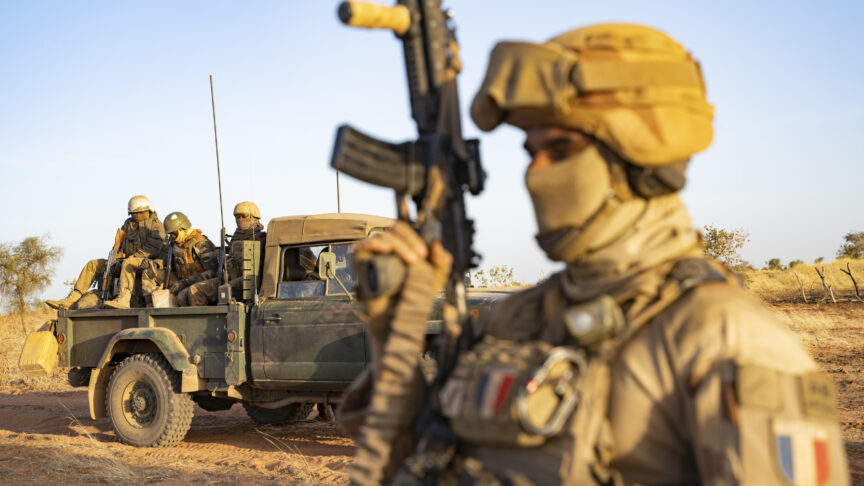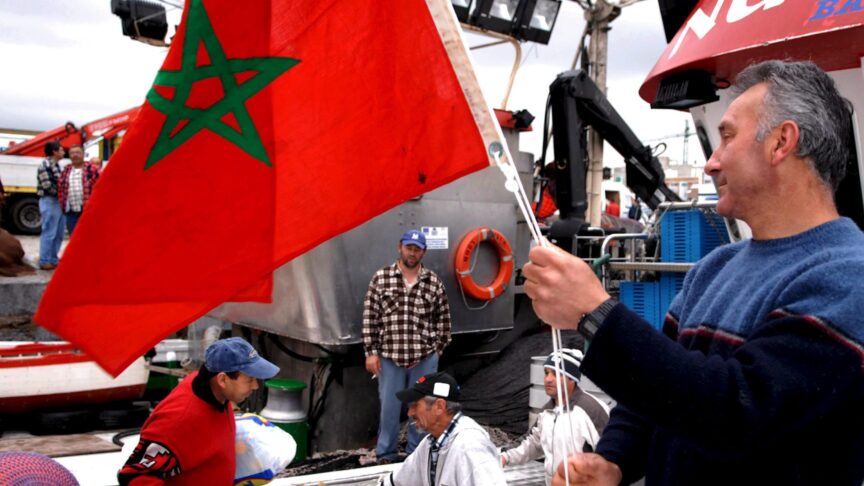Russia’s hired guns in Africa
The involvement of Russian private military companies in Africa is rapidly growing, and with it, their political and economic influence
The murder of three Russian journalists in the Central African Republic in July 2018 raised new concerns about Russia’s presence in Africa. Because the reporters were investigating the activities of Russian private military contractors (PMCs), there has been widespread speculation that they were killed at the behest of a Russian state determined to expand its presence on the continent. This explanation is plausible: after years of irrelevance in resource-rich but politically unstable central Africa, the Kremlin has heavily relied on PMCs – a cost-effective and efficient tool for hybrid confrontation – in making its return to the region.
Russia is strengthening its economic and political ties with Africa. The value of Russian trade with African countries rose from $3.4 billion in 2015 to $14.5 billion in 2016, and the Kremlin is actively cooperating with African dictators that the West has targeted with economic and political sanctions. Indeed, Sudanese President Omar al-Bashir, an alleged war criminal and sponsor of terrorist groups, has openly sought support from his Russian counterpart, Vladimir Putin. The Wagner Group – the most notorious Russian firm to engage in hostilities in Ukraine and Syria – is by no means the only PMC serving the Kremlin’s political interests abroad. Such mercenary organisations are likely to expand in both size and the range of their operations in the coming years.
The Kremlin’s strategic interests in Africa
During the cold war, Moscow viewed Africa through the lens of ideological confrontation with the capitalist West, believing that decolonisation on the continent provided an opportunity to draw new states in the Soviet sphere. The Soviets’ “race for Africa” clashed with Western attempts to retain influence there, inflicting devastation and misery on the continent. Civil wars in Ethiopia (1974-1991) and Angola (1975-2002) claimed millions of lives. Driven by strong desire to win the battle for Africa, Moscow sacrificed astronomic resources – mostly in vain.
Although the Kremlin refuses to acknowledge their existence, PMCs have become an essential tool of Russian foreign policy
The demise of the Soviet Union in 1991 forced the Kremlin to withdraw from the continent. It only returned in 2005, when there was a significant rise in Russian investment in Africa. This time, however, the Kremlin’s strategy had no ideological component: profitability had become its prime motive. In the last three years, Moscow significantly intensified its involvement in Africa, a process that culminated in Foreign Minister Sergey Lavrov’s tour of Angola, Namibia, Mozambique, Zimbabwe, and Ethiopia earlier this year.
Despite its jubilant rhetoric to the contrary, Russia has meagre economic prospects in Africa. Yet it has other strengths on the continent. Firstly, Moscow has no scruples about cooperating with governments with poor human rights records, particularly those in the CAR, Sudan, the Democratic Republic of Congo, and Burundi. Secondly, Russia is skilful at exploiting historical grievances and reviving anti-Western sentiment, as seen in Angola, Ethiopia, and Mozambique. Thirdly, Russia sells relatively inexpensive arms and other military equipment. Finally, it is willing to provide African governments with cost-effective advisory and security services using PMCs.
The role of Russian PMCs
Putin publicly supported the creation of mercenary groups in 2012 but, officially, they remain illegal in Russia. Although the Kremlin refuses to acknowledge their existence, PMCs have become an essential tool of Russian foreign policy. This has been apparent in both the Ukraine conflict and the Syrian civil war. By employing irregular armed groups, Moscow has gained the luxury of plausible deniability: the ability to simultaneous be and not be party to a conflict, thereby escaping public accountability for casualties of war. The Kremlin’s response to the decimation of a Wagner Group unit in Syria in early 2018 provides a good example of this.
After using Ukraine as a testing ground, Russian PMCs have bloomed in Syria, where they – unlike their Western counterparts – have carried out offensive military operations. For Moscow, PMCs have become indispensable to implementing an asymmetric strategy in conflict zones, as part of a state-controlled system of coercion that relies on limited military confrontation to achieve economic goals (as seen in Russia’s seizure of oil and gas resources and infrastructure).
Russia’s security exports
So far, Russian PMCs have been spotted in three African countries. Despite – or, perhaps, because of – Bashir’s notoriety, Moscow seems to have chosen his government as one of its key African allies. The dictator has visited Russia several times, criticising the US and urging Moscow to “save Africa, the way they did with Syria”. Reputable Russian sources have uncovered information about “members of Russian PMCs, allegedly the Wagner Group, acting in Sudan”. Igor “Strelkov” Girkin has made similar revelations about such groups’ activities in Ukraine.
In addition to its abundant natural resources (particularly oil reserves) and need for infrastructure investment, Sudan has a geographical advantage: at the cross-section of north and sub-Saharan Africa, the country can provide strategically important access to the Horn of Africa. Therefore, Russia could gain a great deal from cooperation with Sudan, including access to Sudanese ports and even permission to build a naval base on the Red Sea coast.
Meanwhile, President Faustin-Archange Touadéra has finally confirmed that, as had long been rumoured, “Russian military instructors” are conducting a security and training mission in the CAR. Caught up in a violent confrontation between a patchwork of gangs and militarised groups, the country is incredibly rich in gold, diamonds, and uranium. The CAR’s political instability, international isolation, and inability to extract these resources by itself make it an ideal operational theatre for Russia. Russian PMC Patriot – which has close links with the Federal Security Service, the Ministry of Foreign Affairs, and the Russian Aerospace Forces – conducts various unsavoury missions in CAR (and further afield), allegedly including the assassination of the three Russian journalists in the country.
Burundi provides a new model of how Russia could employ PMCs in Africa and other regions. Russian information outlet Dozhd claims that the country is a theatre of operations for both the Wagner Group and Patriot. Indeed, Colonel-General (ret.) Leonid Ivashov, president of the Academy of Geopolitical Problems, has confirmed that Patriot is present in Burundi. The two PMCs appear to perform different roles in Burundi: while the Wagner Group mainly deals with military-related tasks, Patriot (which is better paid and equipped) provides security and protects important people and infrastructure sites.
An opportunity for Russia
With the once-dominant African PMC Executive Outcomes long gone, and with many peacekeeping missions on the continent proving ineffective, governments in central Africa appear to increasingly rely on new mercenary groups. These groups are likely to be instrumental to major powers’ struggle for influence in the region – creating an opportunity for Russia. And dictators there seem to favour the Russian approach of providing protection and training in return for rights to resources and/or infrastructure contracts. Due to all these factors, the number and operational reach of Russian PMCs in Africa look set to grow rapidly.
Sergey Sukhankin is a Fellow at the Jamestown Foundation and an Associate Expert at the International Center for Policy Studies (Kyiv). His areas of scientific interest primarily concern Kaliningrad and the Baltic Sea region, Russian information and cyber security, A2/AD and its interpretation in Russia, as well as the development of Russia Private Military Companies (PMC) after the outbreak of the Syrian civil war.
The European Council on Foreign Relations does not take collective positions. ECFR publications only represent the views of their individual authors.


